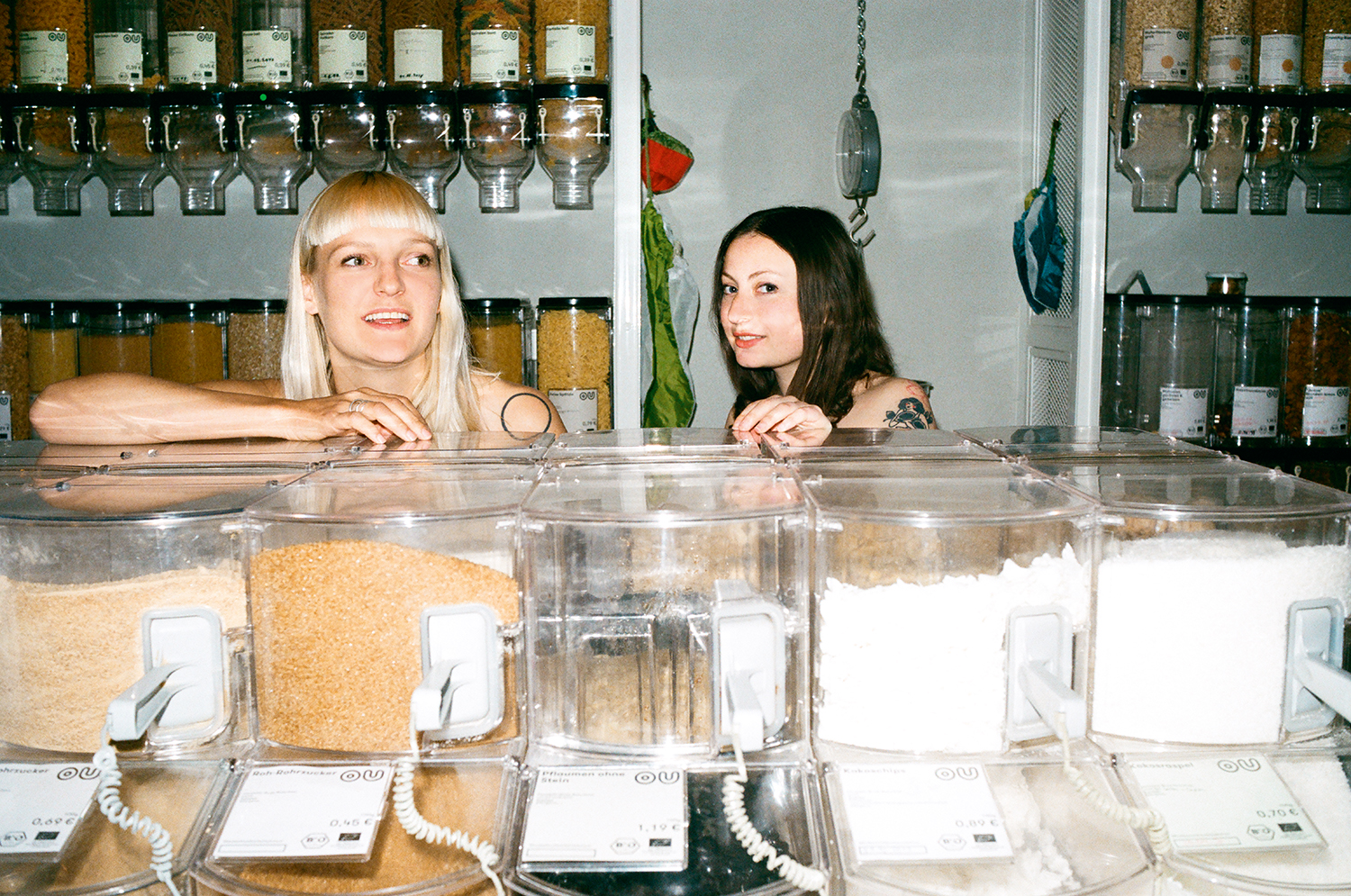Purple Magazine
— F/W 2015 issue 24
Original Unverpackt
No Waste Supermarket
environment, berlin
interview by SVEN SCHUMANN
portrait by MAXIME BALLESTEROS
Sara Wolf and Milena Glimbovski, founders of Original Unverpackt, claim their store is the world’s first supermarket to eschew packaging completely. This seems feasible for fruits and vegetables but calls for creativity when it comes to the variety of other products a supermarket needs to offer. It’s an ambitious project for two young women (Sara is 31 and Milena is 24) with no previous experience in the field.
SVEN SCHUMANN — How can you sell toothpaste, for example, without any packaging?
MILENA GLIMBOVSKI — We offer toothpaste tablets that you chew on when you want to brush your teeth. The tablets eliminate wasteful packaging, and your toothpaste doesn’t get contaminated by the plastic that would be surrounding it. It’s better for you. We did a lot of research to find these kinds of alternative products. We…
